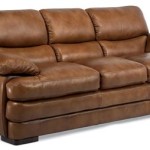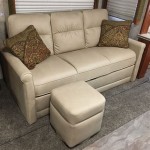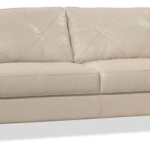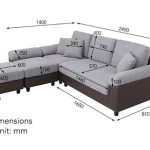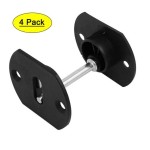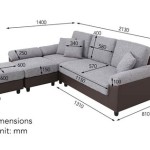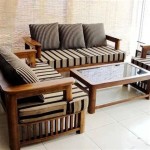What Is the Length of a Small Sofa? Its Essential Aspects
Determining a small sofa's length is crucial for ensuring a harmonious and functional seating arrangement in any living space. The length of a small sofa varies depending on its design, style, and intended usage. Understanding the essential aspects that influence the length of a small sofa empowers individuals with the knowledge to make informed decisions when selecting the appropriate size for their specific needs.
This article delves into the following essential aspects that impact the length of a small sofa: overall dimensions, seat depth, armrest size, and style considerations. Through a comprehensive examination of these aspects, readers will gain a thorough understanding of the factors to consider when selecting a small sofa that meets their requirements.
Overall Dimensions
The overall dimensions of a small sofa encompass its length, width, and height. The length of a small sofa is typically measured from one end to the other, excluding any protruding features such as armrests or back cushions. The width refers to the distance between the two sides of the sofa, while the height measures the distance from the floor to the top of the sofa's back. Understanding the overall dimensions ensures that the sofa fits comfortably within the available space and maintains a balanced aesthetic.
Seat Depth
Seat depth plays a significant role in determining the overall length of a small sofa. It refers to the distance from the front edge of the sofa to the back cushions. A sofa with a deeper seat tends to be longer than one with a shallower seat. Consider the intended usage when selecting the seat depth. A sofa with a deeper seat provides a more relaxed and comfortable seating experience, while a sofa with a shallower seat offers a more upright and formal sitting position.
Armrest Size
Armrests contribute to the overall length of a small sofa. The size of the armrests, whether wide and plush or narrow and minimalist, affects the overall dimensions. Wide armrests extend the sofa's length, while narrow armrests create a more compact appearance. The choice of armrest size depends on personal preference and the desired aesthetic. Wide armrests offer additional comfort and support, while narrow armrests create a more streamlined and modern look.
Style Considerations
The style of a small sofa also influences its length. Traditional sofas tend to be longer than contemporary or modern sofas. This is because traditional sofas often feature elaborate details, such as scrolled arms or tufted upholstery, which add to their overall length. Contemporary and modern sofas, on the other hand, prioritize clean lines and minimal ornamentation, resulting in a more compact and streamlined appearance.
Conclusion
Understanding the essential aspects that impact the length of a small sofa empowers individuals with the knowledge to make informed decisions when selecting the appropriate size for their specific needs. By considering the overall dimensions, seat depth, armrest size, and style considerations, individuals can ensure a harmonious and functional seating arrangement within their living space.

Sofa Dimensions For 2 3 4 5 6 Person Couches Diagrams Included Home Stratosphere

Sofa Dimensions For 2 3 4 5 6 Person Couches Diagrams Included Home Stratosphere

John Lewis Bailey High Back Small 2 Seater Sofa

Sofa Dimensions For 2 3 4 And 5 Person Couches Charts Diagrams Bed Small Spaces Formal Living Room Designs

3 Seater Sofa Couch Fabric Upholstered Square Arm With Padded Cushion And Solid Wood Legs Accent For Living Room Bedroom Office Apartment Small Space Beige Com

Sofa Sizes To Fit Your Space Sofology

Sofa Dimensions 101 Measuring For Your Perfect

Vonanda Sofa Couch Modern Design 3 Seater With Clean Lines And Premium Fabric Living Room Furniture For Compact Space 74 Inch In Length Grey Com

Sofa Dimensions What S The Average Size Of A

Logan Small Double Fold Out Sofa Bed M S

